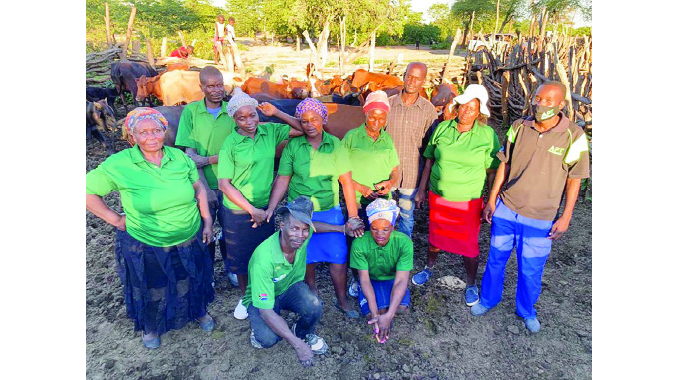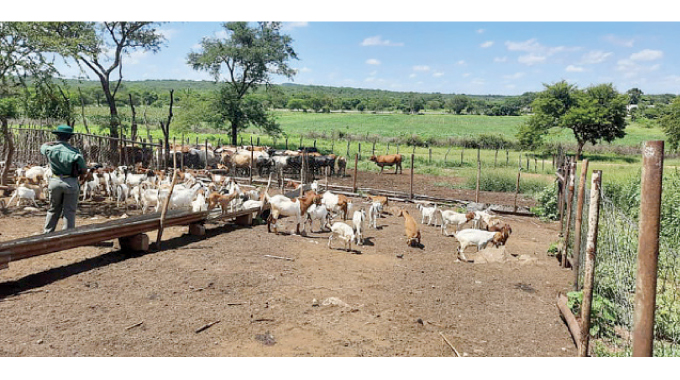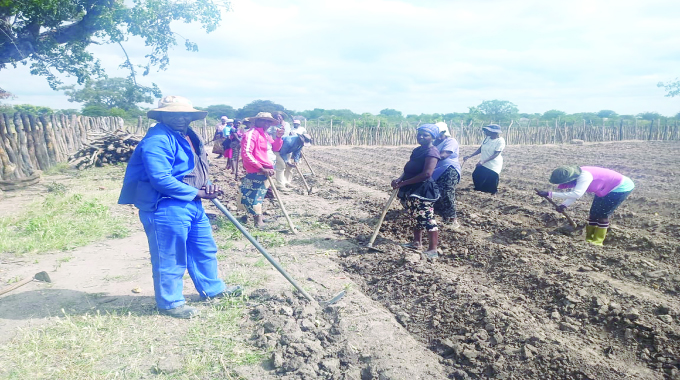Resilience journey of Nkayi’s Lahlingubo local market initiative

Ishmael Hamandishe
“TOMORROW belongs to people who prepare for it today,” is a timeless Africa proverb that has been embraced by the women of Ward 5, Nkayi district who have taken matters into their hands to change the course of their financial destiny.
In a district where the culture of leaving wives in rural areas is still alive as men search for employment in the city or neighbouring countries, women are usually left financially vulnerable.
Although most families are reliant on men for financial support, economic challenges and shifting social roles over the years have seen women having an equal responsibility of taking care of their families.
As part of measures to empower the community in Nkayi, the Zimbabwe Resilience Building Fund (ZRBF)-MELANA introduced and promoted Gender Action Learning Systems — a community-led empowerment methodology that uses principles of inclusion to improve income, food and nutrition security of vulnerable people in a gender-equitable way.

Zimbabwe Resilience Building Fund
Nkayi district, like most areas in Zimbabwe has been experiencing the vagaries of climate change with estimates indicating that recurrent droughts in Nkayi district have killed a cumulative 2 479 cattle between 2019 to 2021.
While the local economy is driven by livestock, animal fatalities have increased household vulnerability at a time when farmers need these for draught power, as a food source and a social safety net when hit by a crisis.
Pursuant to community engagements conducted by ZRBF-MELANA in partnership with the Government extension officers through its disaster risk reduction initiatives, ZRBF-MELANA has conducted market linkage trainings.
These are meant to strengthen existing groups’ business skills.
It has also empowered the groups to adopt new business ideas that build a sound financial base and maintains sustainable businesses.
Prior to the ZRBF interventions, there was Lahlingubo, a local market actor composed of six females and two males mainly focused on internal savings and lending.
After engaging in ZRBF training, the group transformed its activities and ventured into various business models as a way of diversification.
Over the years Ward 5, Nkayi has faced a number of challenges associated with dry weather conditions, which have harshly affected livestock production.
ZRBF-MELANA through its hazard mapping exercise has helped communities in this area to identify and plan for these shocks and stresses.
Identifying some of these hazards before they occur has helped the community to feel more prepared for the future, said Maureen Sibanda, chairperson of Lahlingubo.
She says mapping has helped Lahlingubo to adopt business models that best address the unique challenges they face.
One of the obvious options to avert cattle poverty deaths was for farmers in Ward 5 to purchase stock feed for their animals.
However, stockfeed companies find it difficult to meet the demands of livestock farmers during drought and they rarely bring the feed to communal areas and when they do very few farmers can afford it.

Livestock
A bag of 50kg stockfeed in Nkayi ranges from US$20 to US$25 excluding transport.
And to bridge the gap Lahlingubo is doing bush-meal production and selling the same amount of feed for US$12, which is relatively affordable to livestock farmers.
The group contributed US$617, paying 30 percent of the funds needed to purchase a hammermill, with ZRBF-MELANA contributing the other 70 percent.
This has been one transformative tool with significant benefits to the community as they get to purchase locally produced stock feed at a cheaper cost.
The hammermill has a dual purpose, since it can both be used as grinding mill and for processing bush-meal.
Bush-meal is survival stockfeed produced by milling edible wild pods and small tree branches into palatable feed for the livestock.

The feed is then supplemented with crop stover, cereals, salt to name just a few ingredients.
Some of the natural material like the tree branches and wild fruits like ihabahaba (monkey bread) ruminating animals cannot naturally eat them, hence they need to go through the milling process.
The tree types needed for the production of bush-meal are in abundance in Ward 5 Nkayi district hence tapping into these locally available resources significantly helps the livestock farmers.
Bush-meal production also aids rangeland restoration and is also used to control bush encroachment through the reduction in population of undesirable plant species in the rangelands.
Some of the plants have severe negative impacts on pastures as they significantly suppress the growth of pastures.
Mrs Susan Sibanda, beamed with happiness as she highlighted how ZRBF-MELANA has helped her family.
“Through the various projects we are engaged in, I now have the financial capacity to assist my husband with some household needs. South Africa is not always rosy,” she said.
Her household is a typical example of many families in Nkayi where husbands have relocated to neighbouring countries for greener pastures.
Ms Janet Dube, another member of Lahlingubo says the bush-meal project has helped her save her five calves and cows from drought during the dry season when most farmers suffer severe animal deaths.
“Besides the calves surviving, I am experiencing an increase in milk production, when we supplement the cows’ feed with bush-meal.
We now have enough milk to produce amasi for the family,” she said.
To date the group has serviced a total of 2 387 farmers with both bush-meal and grinding services, selling a total of 10,869 tons from 2019 and realising total income of US$2 169,04 from bush-meal alone.
Lahlingubo also purchased a multi grain thresher in May 2021 through co-financing where they paid 30 percent of the total cost with ZRBF-MELANA contributing the rest.
The thresher is also another transformative tool as it has helped the community to increase its hectarage on small-grain production.
“Before we bought the thresher, we hardly produced small grains as a community as it was laborious when it comes to threshing them,” added Mrs Sibanda as she posed in her one-hectare field of sorghum variety which repels birds.

Farmers
To date the thresher has reached to a total of 50 farmers, threshing cumulatively 36,79 tons while realizing total income of US$801.00.
Lahlingubo has contracted 20 farmers in Ward 5 for the 2021-2022 farming season, who will sell and thresh their grain with the group.
Besides the obvious benefits of generating income for Lahlingubo, this will encourage farmers to increase their hectarage on small grains as they will benefit from the income.
With the community continuously facing dry spells, an increase in the production of small grains will ensure that most households are food insecure, something members of Lahlingubo have been experiencing since they ventured into small grain production in 2017.
Since both the bush-meal and threshing businesses are seasonal, the group has further diversified to selling Sasso chickens after receiving training from Hamara Feeds, a company that specializes in the poultry production value chain, which also works in partnership with ZRBF-MELANA project.
The group has received Sasso birds and four bags of poultry feed with a mother brooder and now sells chickens to the local community at three weeks old.
“If we sell the chickens, we can easily cater for our daily needs as a group and contribute to the community’s nutrition needs as the chickens’ lay eggs and provide meat,” said Mr Christopher Nkomo, a farmer also based in Ward 5.
The project is promoting the brooder model to reduce mortalities of chicks from day one to week four, which is the most difficult stage of production especially for most communal farmers.
As part of promoting resilience smart agriculture initiatives, ZRBF-MELANA also co-financed a mechanized conservation farming planter on a 30 percent-70 percent ratio.
The planter will ease the labor part in conservation farming and will boost the business of Lahlingubo as it will be hired out to the community at US$10, the planter is set start operations in the next farming season.
The overall output of this initiative is to ensure farmers partake in resilience smart agriculture which will help them on their endeavor of being food secure.
“We have learnt over the years that working together in groups goes a long way in helping our group to withstand the shock and stresses we face, and that will also spill onto the other community members in our road to being resilient,” said Mrs Sibanda.










Comments